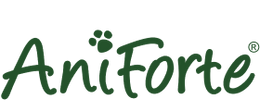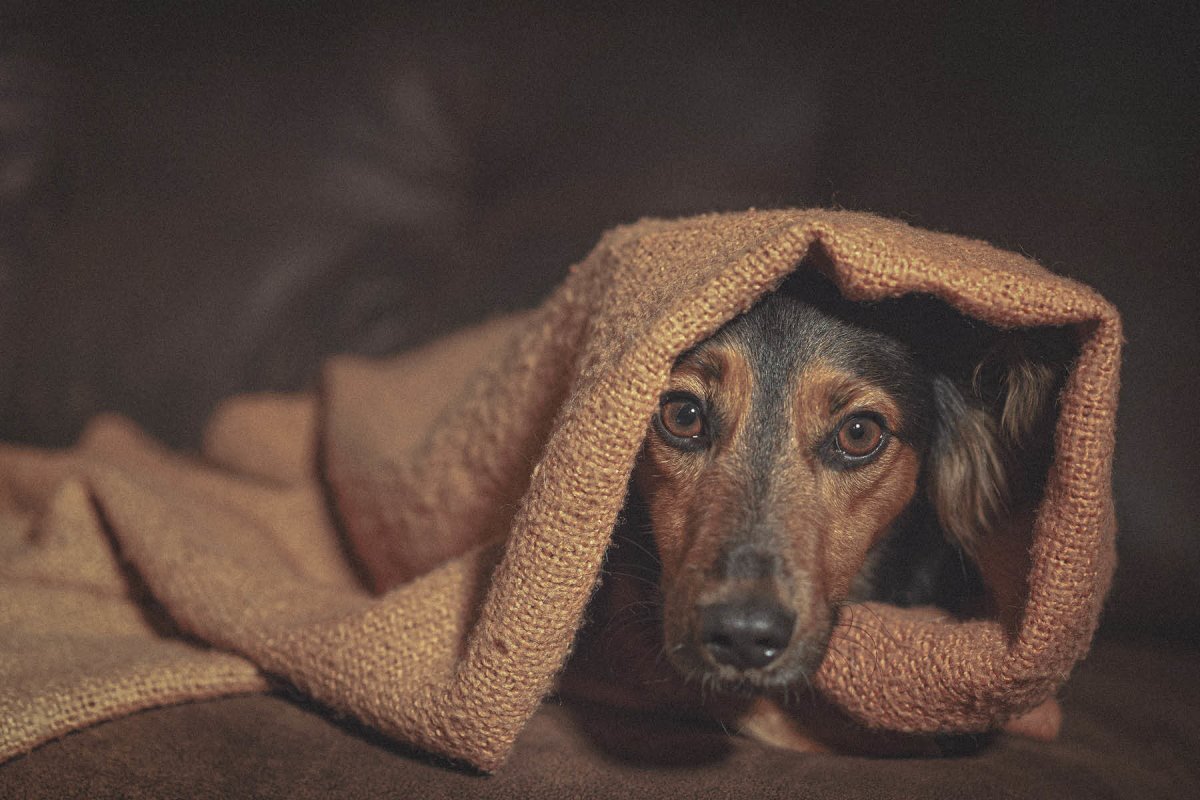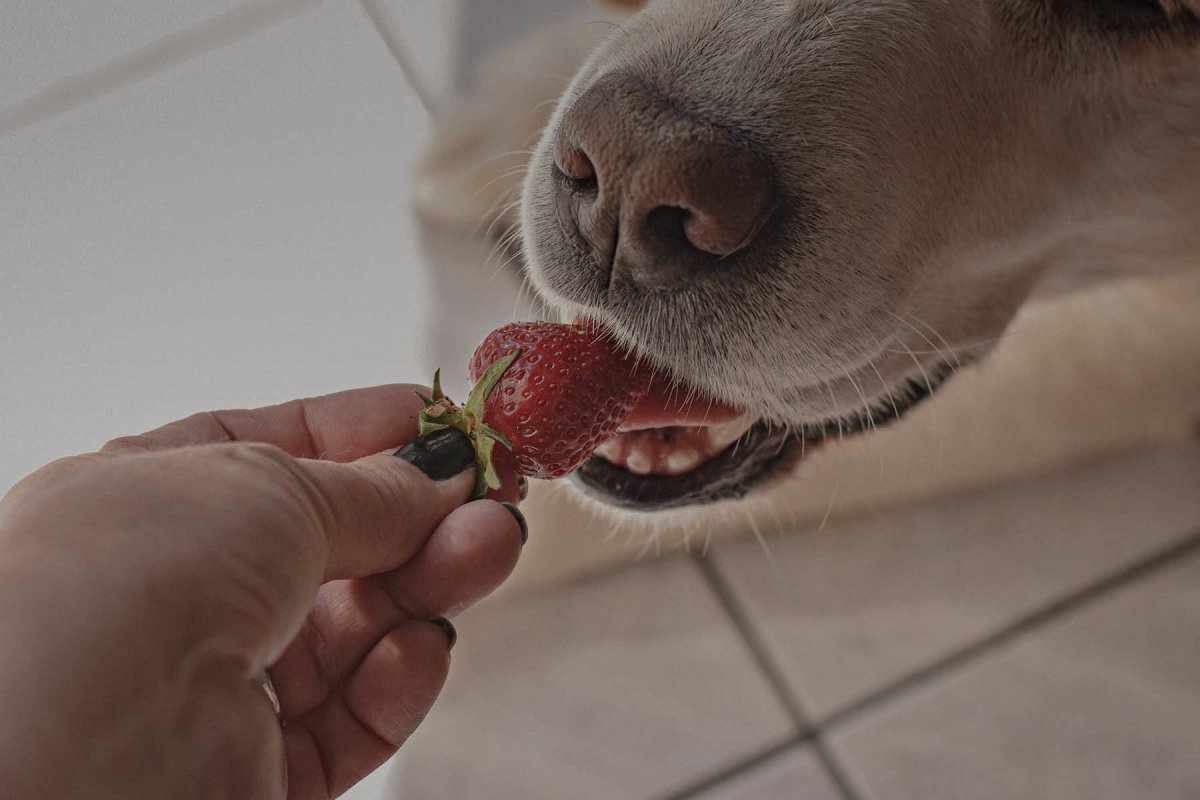Some dandruff in a dog's coat is completely normal and can occur again and again as part of cell renewal. However, dandruff can also get out of hand and become a permanent condition. Find out in this article when dandruff becomes problematic in dogs and what the causes can be.
Symptoms of dog dandruff
Dandruff in dogs is often caused by excessively dry skin. This is because dry skin causes itching, the dog scratches itself more often, causing flakes of skin to come off and become visible in the coat. Dandruff on dogs is particularly easy to recognize on dark coats. White or yellow flakes can either appear locally or cover your dog's entire coat.
However, frequent scratching can also introduce germs and bacteria into the open areas, which can lead to inflammation and secondary infections in the animal. Depending on how advanced the dandruff is, other possible symptoms include hair loss, bald patches and scabs.
While white dandruff is caused by excessively dry skin, yellow dandruff is an indication of excessive sebum production. The dog's coat is covered with large areas of sticky yellow dandruff and is also very greasy.
Causes and treatment of dandruff in dogs
If your dog has dandruff, there are several possible causes. It may be a temporary skin change caused by a change in weather, a change of coat or cell renewal. This can occur repeatedly and should subside after a few days. By regularly grooming your dog's coat, you can also support cell renewal, promote blood circulation in the skin and remove dirt particles and dead skin cells.
Dandruff is particularly common in dogs during the cold season. Excessively dry heated air and frequent bathing can dry out the skin and damage the pH value and the skin's natural oil layer. If your four-legged friend hasn't been able to avoid a puddle and has even rolled around in the mud, there's no getting around a bath. We recommend our Sensitive dog shampoo for sensitive dog skin, which is adapted to the pH value of the skin and does not degrease it.
However, dandruff in dogs can also indicate serious complaints and even illnesses:
Incorrect diet - oversupply or undersupply of nutrients
One of the most common causes of dandruff in dogs is an incorrect and inappropriate diet. An undersupply or oversupply leads to malnutrition, which depletes the body's reserves. As a result, the four-legged friend reacts with deficiency symptoms such as dandruff, dry skin and itching. In particular, a lack of important vitamins, minerals and essential fatty acids can make dogs ill in the long term.
Allergies, intolerances and food changes
An incorrect and inappropriate diet also includes ingredients that can trigger allergies in dogs. Common symptoms of allergies or intolerances are also itching and dandruff in dogs. Grains, attractants, protein substitutes and preservatives in particular are not healthy for the dog's organism and can trigger immune reactions, which then manifest themselves as intolerances or allergies. We therefore always recommend purely natural food for dogs that is free from artificial additives and meets your dog's nutritional requirements. If you want to change your pet's food, make sure that the change is not too sudden. This is because switching from old food to new food can be stressful for your four-legged friend's body. Physical reactions such as diarrhea in dogs, skin problems with dandruff or general malaise can be the result.
Seborrhoeic dermatitis - congenital or acquired
Diseases such as seborrhea can also be the cause of dandruff in dogs. A distinction must be made between primary and secondary seborrhea. While primary seborrhea is hereditary and already causes symptoms in puppies, secondary seborrhea is acquired in the course of a dog's life. Excessive sebum production, greasy fur and yellow dandruff are typical symptoms of this disease. The causes can be other underlying diseases such as inflammation in the body, allergies or hormonal disorders.
Mental problems such as anxiety and stress
It is not uncommon for psychological problems such as stress or anxiety to trigger increased scratching and dandruff in dogs. Underchallenge can also make dogs depressed. Your four-legged friend then reacts with extreme nibbling and licking of body parts in an attempt to relieve the stress caused by too little exercise and variety. In addition to boredom, excessive demands can also lead to mental disorders in dogs. Everyone has to find their own individual balance that suits their dog.
Does your dog have dandruff and after a few days to a week the flakes can still be found in the coat or have even increased in size? Then you should definitely talk to your vet or veterinary practitioner. They can make a diagnosis based on skin examinations, possibly a blood test and behavioral analysis.
Dog has dandruff - the causes at a glance
- Incorrect diet - under- or oversupply of nutrients
- Allergies and intolerances
- Change of coat
- Parasite infestation
- Psychological problems in dogs
- A disturbed gastrointestinal environment
- Dry heating air
- Frequent bathing - resulting in a disturbed pH value
- Diseases such as seborrhea

Nutrients for a healthy coat and vital skin
If your four-legged friend's illnesses have been ruled out, you can restore your pet's skin and coat by adjusting their diet. If your dog has dandruff, the following food supplements can help:
Brewer's yeast: This natural product is known for its high vitamin B content and its positive effect on the skin and coat. Brewer's yeast is obtained from beer sludge, the waste product of beer production, and then dried. The yeast cultures it contains have an effect on the gastrointestinal tract and thus provide important microorganisms for the development of the intestines. As a side effect, brewer's yeast for dogs contributes to a shiny coat and vital skin thanks to its ingredients.
Salmon oil: Salmon oil for dogs contains the essential omega-3 fatty acids that support the dog's natural metabolism. The fatty acids eicosapentaenoic acid (EPA) and docosahexaenoic acid (DHA) are present in the cell membrane and contribute to the elasticity and fluidity of the membranes. Salmon oil is also often used as a dietary supplement in the human sector. Alternatively, salmon oil capsules can also be fed to dogs.
Coconut oil: Coconut oil for dogs has also proven its worth as a feed supplement and for coat care. It contains the important lauric acid, a fatty acid that is found in up to 53% of coconut oil. The medium-chain fatty acid is important for energy metabolism and the immune system.
Propolis: This natural bee product is used by insects as a building material to seal the beehive. It protects against germs and promotes wound healing. Dogs in particular that scratch more often should also be fed propolis powder. It strengthens the immune system and maintains healthy skin.
Other proven feed supplements for healthy skin and a vital coat are hemp oil, linseed oil and seaweed meal. If you are not sure which supplements are suitable for your four-legged friend, simply contact our competent service team of veterinary practitioners, animal nutrition experts and vets.
Conclusion
If your dog has dandruff, there's no need to panic. Some flakes in your four-legged friend's coat are completely natural and are simply part of cell renewal and coat growth. However, if the dandruff is persistent, other causes may be responsible. Underlying illnesses, poor nutrition or even psychological stress can lead to increased scratching in dogs and can be manifested by dandruff in the coat. In this case, you should schedule a visit to your trusted vet to determine the exact cause. You can also provide your pet's skin and coat with valuable vitamins, minerals and essential fatty acids with natural food supplements.




